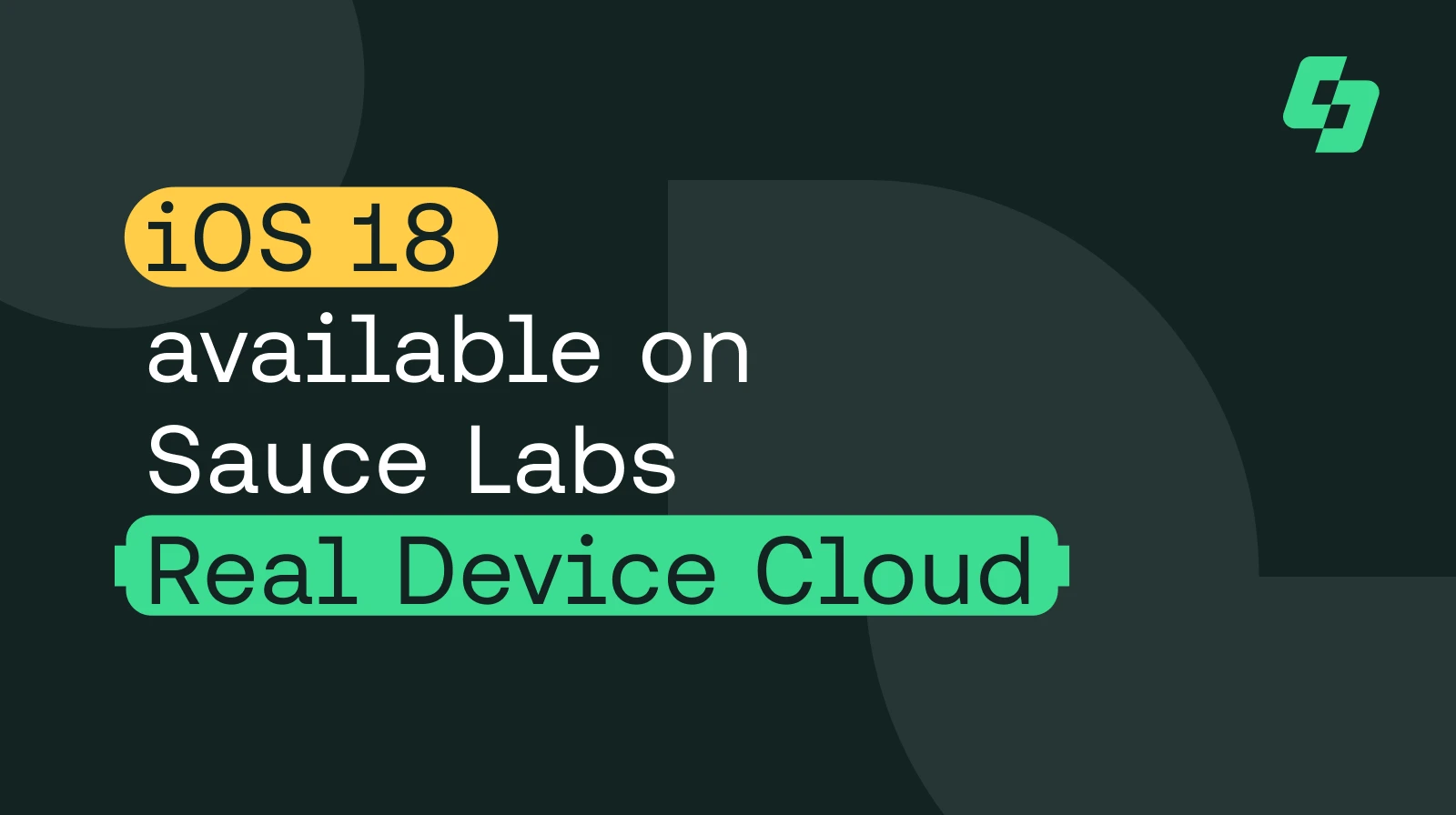What is iOS 18?
iOS 18 is the latest version of Apple’s operating system for iPhone, following iOS 17. Initially launched as iOS 18 beta, this release brings new and exciting features and enhancements for iOS users and app developers.
Why Test Your Apps on New iOS Versions?
Mitigate risks early: Identify and address potential bugs, mitigate risks, and ensure a smooth transition for users.
Prepare for rapid adoption: With iOS 17 adoption reaching nearly 65% within three months of its launch, timely testing ensures apps are ready for increasing user adoption.
Build trust: Early testing reduces compatibility issues and app crashes, ensuring smooth performance with each iOS update and fostering user trust.
Stay ahead: Integrate the latest features and advancements early, ensuring your apps can leverage new APIs and frameworks introduced, giving your apps a competitive edge.
Best Practices for Testing on New OS
Use these practices to help streamline your testing process. This will ensure your app remains compatible with the latest OS versions while optimizing resource utilization and test coverage.
Identify and Test Breaking Changes: Carefully review the release notes and documentation for the new OS versions to identify breaking changes that could impact your app. Develop and execute tests specifically designed to address these changes. This proactive approach helps catch potential issues early and ensures your app remains functional with the new OS updates.
Maintain Best Practices for Test Design: Continue to apply established best practices in test design, such as creating small, atomic, and independent tests that can run in parallel. This approach enhances test reliability and speeds testing by ensuring your tests are modular and reusable.
Gradual Rollout and Compatibility Checks: Start by rolling out the new OS versions on a small scale to perform basic compatibility tests that help verify whether your app launches and performs basic functions on the new platform. Then, gradually expand your testing scope to cover more comprehensive scenarios and edge cases.
Targeted Testing on Real Devices: Focus your testing efforts on a subset of critical tests that leverage new OS features or address specific changes.
iOS 18: Features You Need to Know
It's crucial for testers and developers to understand the new features in iOS 18 that will impact user experience and app development.
The improved multitasking capabilities directly enhance user experience and productivity, and the AI and Machine Learning improvements impact app behavior and user interaction. Here are some other key features to know:
Apple Intelligence: On-device AI to personalize user experience (Available on iPhone 15 Pro models and iPads and Macs with an M-series chip)
Enhanced Siri: Edit photos, manage files, create folders, and more.
StoreKit: Implement in-app purchases and subscriptions within the apps.
Translation API: Programmatically translate text within the apps.
Redesigned Control Center: Rearrange elements for easier access and customize sizes and groups.
Improved Accessibility: Control iPhone with eye movements and more features.
And more...
To efficiently navigate the wealth of information, we recommend reviewing the relevant APIs you use from the WWDC sessions library and checking out the detailed release notes.
Start Testing Your App on iOS 18
In an ever-evolving iOS ecosystem, being proactive in testing the transformative changes is paramount. Get instant access to iOS 18 through our Real Device Cloud.
Start testing today!

